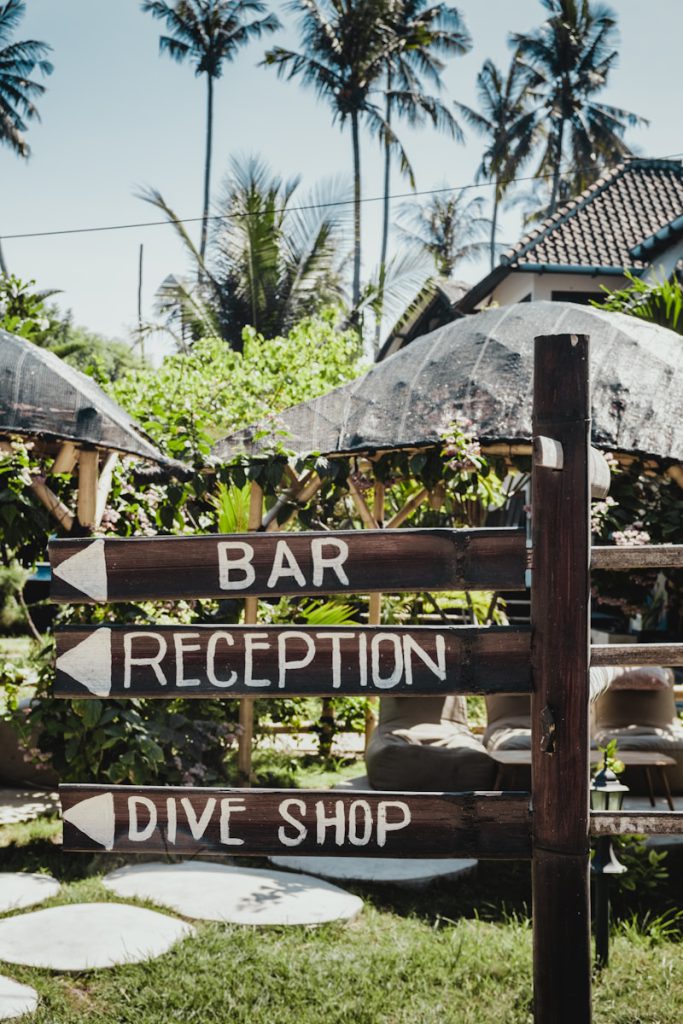Discover essential event planning tips and techniques for planning a successful event on a budget. Learn how to engage your audience, manage your budget, and ensure event success with our expert advice. Plan your event like a pro From budget management to audience engagement, find out the best tips and techniques to make your event a success.
Planning an event can be a daunting task, especially when working with a limited budget. However, with strategic planning and smart decision-making, you can host a memorable event without breaking the bank. In this comprehensive guide, we will explore proven tips and techniques to help you successfully plan an event on a budget. From choosing the right venue to managing your finances effectively, we will cover all aspects of event planning to ensure your event is a success.
Setting a Realistic Budget
Before you start planning, it’s essential to set a realistic budget. This will serve as the foundation for all your decisions and help you prioritize your spending.
Allocating Funds
Once you have a budget, allocate funds to different aspects of the event. This includes venue, catering, entertainment, marketing, and other miscellaneous expenses. Here’s a sample budget allocation table for a corporate event:
| Expense Category | Estimated Cost | Percentage of Total Budget |
|---|---|---|
| Venue | $2,000 | 30% |
| Catering | $1,500 | 25% |
| Entertainment | $1,000 | 15% |
| Marketing | $800 | 12% |
| Miscellaneous | $700 | 18% |

Choosing the Right Venue
Venue Selection Tips
Selecting the right venue is crucial for the success of your event. Here are some tips to help you choose the perfect venue:
- Location: Choose a location that is easily accessible for your attendees.
- Size: Ensure the venue is appropriately sized for your guest list.
- Amenities: Check if the venue provides essential amenities such as AV equipment, Wi-Fi, and parking facilities.
- Cost: Compare prices of different venues and negotiate to get the best deal.
Affordable Venue Options
Consider alternative venue options that are budget-friendly. Here are some examples:
- Community centers
- Parks and outdoor spaces
- University halls
- Local libraries
- Restaurants and cafes with private rooms
Managing Catering Costs
Budget-Friendly Catering Ideas
Catering can be one of the most significant expenses in event planning. Here are some budget-friendly catering ideas:
- Buffet Style: A buffet can be more cost-effective than a sit-down meal.
- Finger Foods: Serve appetizers and finger foods instead of a full-course meal.
- Potluck: Encourage guests to bring a dish to share.
Negotiating with Caterers
Negotiate with caterers to get the best prices. Ask for discounts or package deals and consider local or smaller catering companies who might offer more competitive rates.
Cost-Effective Event Planning Strategies for Weddings, Parties, and More
Here’s a detailed table for the top 10 event planning tips for various types of events including weddings, parties, corporate events, and community events:
| Event Planning Tips | Weddings | Parties | Corporate Events | Community Events | Additional Info |
|---|---|---|---|---|---|
| 1. Set a Realistic Budget | Determine the overall budget, allocate for venue, catering, and decorations. | Prioritize spending on key elements like food, drinks, and music. | Allocate funds for venue, speakers, and marketing. | Focus on essential expenses like permits, security, and promotions. | Always have a contingency fund (10% of the budget). |
| 2. Choose the Right Venue | Select a venue that fits the theme and guest count. | Pick a versatile space suitable for your party type. | Ensure the venue has necessary amenities like AV equipment. | Opt for local parks, community centers, or public spaces. | Negotiate for discounts and compare multiple venues. |
| 3. Manage Catering Costs | Opt for buffet-style or family-style serving to save costs. | Offer finger foods or potluck-style arrangements. | Provide cost-effective catering options like boxed lunches. | Partner with local food vendors or arrange community potluck. | Consider dietary restrictions and preferences. |
| 4. Utilize Effective Marketing | Create personalized invitations and use social media. | Use digital invitations and event pages on social platforms. | Leverage email marketing and LinkedIn for promotions. | Utilize community boards, flyers, and local social media groups. | Collaborate with influencers or local businesses for promotions. |
| 5. Engage Affordable Entertainment | Hire local musicians or DJs, or use a curated playlist. | Organize fun games, hire a local band or DJ. | Opt for local speakers, panel discussions, or team-building activities. | Arrange for local performers, games, and DIY activities. | Reach out to volunteers and community groups. |
| 6. Smart Financial Management | Keep detailed records of all expenses and monitor spending. | Track expenses and stay within the budget. | Use budgeting software to manage costs effectively. | Regularly review spending and adjust as needed. | Maintain a flexible approach to adjust for unexpected costs. |
| 7. Effective Communication | Ensure clear communication with vendors and guests. | Keep guests informed about event details and updates. | Communicate regularly with stakeholders and attendees. | Engage with the community through regular updates. | Use multiple channels like emails, social media, and SMS. |
| 8. Choose the Right Date and Time | Avoid holidays and peak seasons for better rates and availability. | Schedule during weekends or holidays when guests are free. | Avoid conflicting with major industry events or holidays. | Consider local events and weather conditions. | Plan ahead to secure preferred dates and times. |
| 9. Leverage Technology | Use event planning apps for guest lists and RSVPs. | Create event pages and use apps for invitations. | Use event management software for registration and communication. | Utilize social media and community apps for promotion. | Incorporate live streaming and virtual engagement tools. |
| 10. Post-Event Follow-Up | Send thank-you notes and gather feedback. | Share photos and thank guests for attending. | Send follow-up emails and gather attendee feedback. | Engage the community with follow-up events and feedback surveys. | Use feedback for improving future events and building relationships. |
Additional Tips:
- Weddings: Consider off-season dates for lower venue costs. DIY decorations can also save money while adding a personal touch.
- Parties: Utilize home spaces or public parks to save on venue costs. Renting equipment rather than buying can also reduce expenses.
- Corporate Events: Look for sponsorships to offset costs. Early bird registrations can boost attendance and secure funds in advance.
- Community Events: Engage local businesses for sponsorship and in-kind donations. Utilize volunteers to manage different aspects of the event.
By following these tailored tips, you can plan and execute successful and budget-friendly events across various types of gatherings.

Effective Marketing Strategies
Utilizing Social Media
Social media is a powerful tool for marketing your event without spending a fortune. Use platforms like Facebook, Instagram, and Twitter to promote your event and engage with potential attendees.
Email Marketing
Build an email list and send out newsletters and invitations to keep your audience informed about the event details. Offer early-bird discounts or incentives to encourage early registration.
Collaborations and Partnerships
Partner with local businesses, influencers, or sponsors to help promote your event. In exchange, offer them free tickets, booth space, or other benefits.
Engaging Entertainment on a Budget
Affordable Entertainment Options
Entertainment is a key element of any event. Here are some budget-friendly entertainment options:
- Local Bands or DJs: Hire local talent instead of famous artists.
- Photo Booths: Set up a DIY photo booth with props for guests to enjoy.
- Games and Activities: Organize simple games and activities to keep guests entertained.
Volunteer Performers
Reach out to local performers, artists, or community groups who might be willing to volunteer their time in exchange for exposure.
Smart Financial Management
Tracking Expenses
Keep track of all your expenses to ensure you stay within your budget. Use a spreadsheet or budgeting software to monitor your spending.
Contingency Fund
Set aside a contingency fund for unexpected expenses. This should be around 10% of your total budget.
Successful Budget-Friendly Events
Example 1: Community Festival
A local community festival was organized with a budget of $5,000. The organizers chose a local park as the venue, arranged for food trucks, and invited local bands to perform. They utilized social media for promotion and partnered with local businesses for sponsorships. The event was a huge success, attracting over 1,000 attendees.
Example 2: Corporate Seminar
A corporate seminar was held with a budget of $10,000. The organizers selected a university hall as the venue, provided finger foods for catering, and hired a local speaker. They used email marketing and LinkedIn to promote the event, resulting in a well-attended seminar with positive feedback from participants.
Lessons Learned
- Utilize local resources and talent.
- Leverage social media and email marketing for cost-effective promotion.
- Always have a contingency fund for unexpected expenses.
What are some cost-effective venues for hosting events?
Community centers, parks, university halls, local libraries, and restaurants with private rooms are great cost-effective venue options.
How can I save money on catering for my event?
Opt for buffet-style catering, serve finger foods, or organize a potluck where guests bring a dish to share.
What are some affordable entertainment options for events?
Hire local bands or DJs, set up a DIY photo booth, or organize simple games and activities to keep guests entertained.
How can I effectively promote my event on a budget?
Use social media platforms, email marketing, and partner with local businesses or influencers to promote your event cost-effectively.
Conclusion
Planning an event on a budget doesn’t mean compromising on quality. By setting a realistic budget, choosing the right venue, managing catering costs, utilizing effective marketing strategies, and engaging affordable entertainment, you can host a successful event that leaves a lasting impression on your attendees. Remember to track your expenses, set aside a contingency fund, and leverage local resources to maximize your budget. Happy planning!
References:



